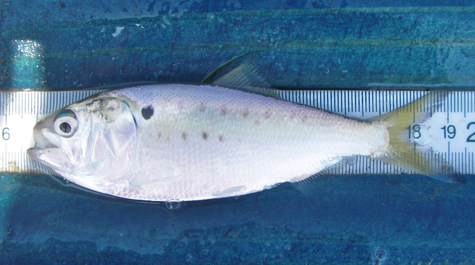28
Study Says Menhaden Can’t Save Bay

The Virginia Institute of Marine Science (VIMS) released a report this month that suggests menhaden, tiny oily fish considered a vital part of the Bay’s food chain, have little effect on the health of the Chesapeake’s waters, according to an Associated Press brief appearing in the Washington Post on March 18.
Menhaden have long been thought to help clean the bay by filtering out nitrogen. But researchers at VIMS found that while menhaden do remove some nitrogen, the tiny fish cannot compete with the vast volume of nitrogen coming into the bay, according to the VIMS press release.
According to scientific estimates, a range of 247 to 585 tons of nitrogen are added to the bay each day. Menhaden, a fish facing a population crisis, can only remove a small fraction.
Researchers watched menhaden in tanks, fed them phytoplankton to see how much nitrogen they could consume, and then made extrapolations about nitrogen removal in the Chesapeake Bay based on the results.
VIMS has been studying menhaden to get a better sense of the fish’s role in Chesapeake ecosystem. More information from VIMS is available at the online research center.
About Us
Our Stories
- Md. Officials May Temporarily Lift Ban on Female Crab Harvest in Bay
- Scientists, Environmentalists Question Readiness of Chesapeake Bay Disaster Plans
- Inner Harbor Water: Unsafe Bacteria Levels, Test Shows
- Swimmers’ Impressions of Bay Not Always in Sync With Its Health, Scientists Say
- Chesapeake Bay Swim Attracts Hundreds in Balmy Conditions, But Course Includes ‘Dead Zone’















